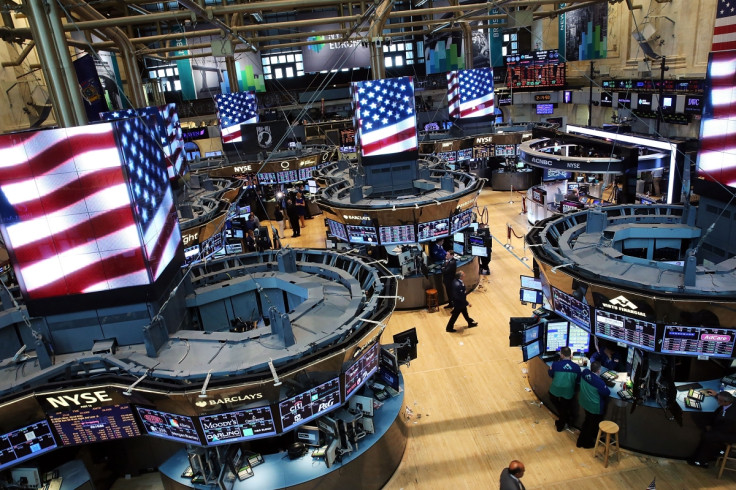US market report: Dow Jones advances slowly after Mario Draghi hints at more European Central Bank stimulus

US equity markets edged slightly higher on Thursday (21 January), after European Central Bank (ECB) President Mario Draghi hinted policymakers might loosen monetary policies even further in a bid to revive the subdued inflation.
Shortly after the opening bell, the Dow Jones Industrial Average was up 0.40% to 15,829.03, while the Nasdaq and the S&P 500 were 0.10% and 0.25% higher respectively. US stock futures had turned sharply north following the ECB announcement and looked set to recoup some of the previous session's losses, which saw the Dow Jones close at its lowest level since 25 August, but relinquished most of those gains as the opening bell approached.
As widely expected by economists, the ECB opted to keep interest rates unchanged at 0.05%, although Draghi said the bank could "possibly reconsider" its position at its next meeting, as global market turmoil raises downside risks.
"The ECB president once more talked up the idea that further easing could be in the pipeline, with March now the go-to meeting where additional monetary policy action could take place," said IG's market analyst Joshua Mahony. "Apart from the nod to a possible March policy shift, there was little new from today's meeting, with risks unsurprisingly to the downside and inflation expectations continuing to suffer amid the commodity rout."
Brent crude and West Texas Intermediate were both below the $28 (£19.8, €25.7) a barrel, with the former losing 1.05% to $27.59 a barrel. while the latter slid 1.36% to $27.97.
Meanwhile, the number of Americans who applied for unemployment benefits in the week to 16 January rose by 10,000 to 293,000, a seven-month high, compared with an expected number of approximately 280,000.
According to official data from the Labor Department, the four-week average of initial claims rose by 6,500 to 285,000, its highest level since April 2015. Since hitting a post-recession low of 256,000 in October, initial unemployment claims have risen 14% to date.
"We feared an even bigger increase, so we are relieved by this number," said Ian Shepherdson, chief economist at Pantheon Macroeconomics. "The problem is the seasonal adjustment, which struggles to cope in January as huge numbers of people are laid off from temporary jobs after the holidays.
"We see no evidence to suggest a sustained rise in layoffs is underway, or that demand for labor outside the manufacturing sector is softening."
On the corporate front, Southwest Airlines was on the front foot after revealing its fourth quarter profit nearly tripled on the back of lower fuel costs, while Verizon Communications was also in the black after the mobile services provider posted better-than-expected earnings.
Elsewhere, Asian stocks were firmly in the red, while their European counterparts wavered throughout the morning session but were comfortably in positive territory by early afternoon and oil prices continued to fall.
© Copyright IBTimes 2025. All rights reserved.


















